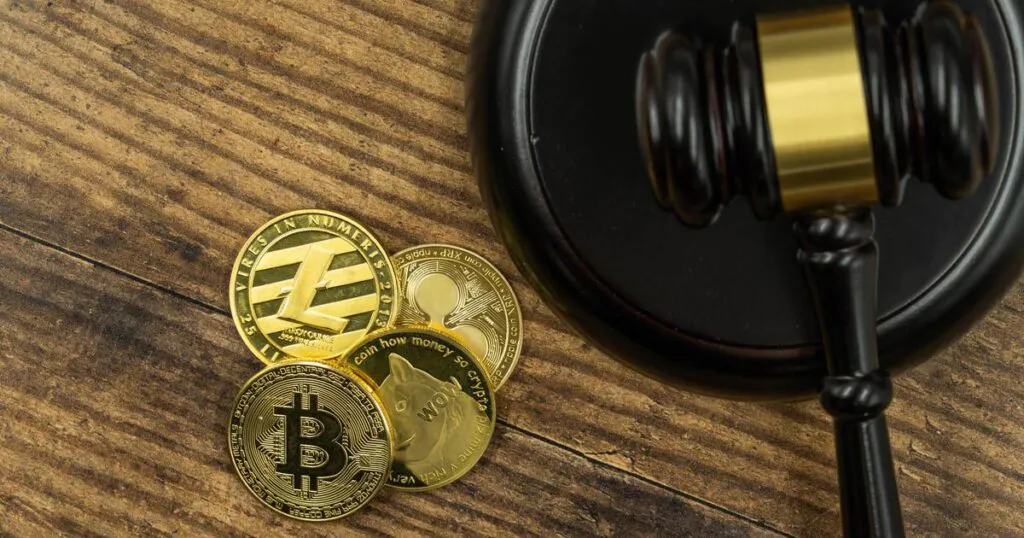Cryptocurrency is a digital asset that operates independently of any form of government or central bank. But who regulates it? In this blog post, we will explore the answer to that question. We will look at who has oversight of crypto in the US and how we can ensure that crypto is regulated properly. By the end of this post, you should have a better understanding of who regulates cryptocurrency and how it is done.
For Those Who Want to Know More Info: Vitaliy Dubinin
What Is Cryptocurrency?
Cryptocurrency is a digital currency that is decentralized and not controlled by any government or central bank. Currently, there are multiple countries regulating the use of cryptocurrency. The main regulatory bodies for cryptocurrency are the Financial Action Task Force, European Union, and US Securities and Exchange Commission. These agencies provide guidelines to help protect consumer interests, prevent money laundering, combat fraud and increase transparency.
Each country’s regulations may differ but they all aim to maintain the secure operation of cryptocurrency exchanges. Cryptocurrency is a digital asset that uses cryptography to secure transactions, control the number of units and verify transfers. It operates on a distributed ledger or blockchain technology, which is an immutable record where all transactions are stored. Bitcoin is the most popular cryptocurrency, although there are many other alternatives available. Cryptocurrency can be used for a variety of purposes including purchasing goods and services, and investing in digital assets.
Understanding The Basics Of Digital Currency
When it comes to cryptocurrencies, different countries have different regulatory frameworks. This can lead to some confusion for investors, traders, and users of cryptocurrencies. In this section, we will outline the basics of digital currency and provide you with information on how to understand the implications of taxation and legislation for those involved in cryptocurrency.
Different countries have developed their own specific regulations around digital currencies, such as New York’s BitLicense. It is important to understand the implications of taxation and legislation before getting involved in cryptocurrencies – without understanding these details, you may find yourself in trouble. Additionally, the Financial Action Task Force (FATF) has issued guidelines to help countries develop appropriate regulations around digital currencies. These guidelines are essential for those who want to understand the risks associated with digital currencies.
While many US states have enacted legislation related to cryptocurrencies, such as New York’s BitLicense, other countries are still developing their own specific regulations, such as Japan’s Virtual Currency Act. It is important for investors, traders, and users of cryptocurrencies to stay up-to-date on the latest news related to digital currency so that they can make informed decisions about their involvement. Additionally, it is important to understand the basics of digital currency in order to make informed decisions about your investment portfolio or use of cryptocurrency in general. Finally, it is always important to keep in mind the risks associated with digital currencies, such as market volatility, illiquidity, and hacking risks. By understanding these basics, you can take a more informed stance when investing in or using cryptocurrencies!
Who Has Oversight Of Crypto In The US?
When it comes to cryptocurrency, there are a lot of regulatory questions that still need to be answered. This is because cryptocurrency is still relatively new and largely unregulated. This means that there are a number of agencies that are responsible for overseeing crypto activities in the US. Let’s take a look at who these agencies are and what their role is.
First, it’s worth mentioning that cryptocurrency is regulated by the Financial Crimes Enforcement Network (FinCEN). This agency was created in 2013 to combat money laundering and other financial crimes. As such, FinCEN has a lot of power when it comes to regulating cryptocurrency transactions.
Another key agency involved in crypto regulation is the Treasury Department’s Office of Foreign Assets Control (OFAC). OFAC regulates US citizens and companies who are dealing with foreign assets. This includes anything related to crypto transactions, including buying, selling, or investing in cryptocurrencies.
Another important player in the crypto world is the Securities and Exchange Commission (SEC). SEC regulates all securities – from stocks to ICOs (initial coin offerings). If you’re looking to sell your tokens on an American exchange, then you’ll need to comply with SEC regulations.
State agencies also have a role to play when it comes to cryptocurrencies. For example, California has its own set of regulations governing digital tokens and how they’re treated as investments. Other states such as New York have also taken an interest in cryptocurrencies over recent years, meaning that there’s a lot of regulatory uncertainty right now across the US when it comes to crypto dealings.
Finally, one agency that plays an important role when it comes to consumer protection is the Federal Trade Commission (FTC). The FTC oversees all aspects of online marketing including digital currency products and services. They’re responsible for ensuring that any products or services offered through digital channels are safe and legitimate before recommending them to consumers.
How Do We Ensure Crypto Is Regulated Properly?
Cryptocurrencies are quickly becoming a popular form of payment, and as such, there is growing concern over how they will be regulated. At present, there are a variety of different governments that have implemented cryptocurrency legislation in order to protect both consumers and investors. However, it is clear that more needs to be done in order to ensure the safety and security of crypto transactions.
One issue that policymakers face is how to deal with the fact that cryptocurrencies are not governed by one central authority. This makes it difficult to create uniform regulation across countries and jurisdictions. In addition, there has been a lot of speculation around cryptocurrencies which has led to concerns about price manipulation and fraud. As such, it is important that regulators take steps to protect both consumers and investors.
Read Also: Who Control Cryptocurrency
One proposed way of doing this is for regulators to establish rules around digital asset exchanges (DEXs). These exchanges play an important role in the crypto economy by allowing users to trade cryptocurrencies for other digital assets or fiat currencies. However, DEXs have been subject to fraudulent practices in the past which has caused significant losses for both investors and traders. Therefore, it is important that regulators take steps to ensure their safety and security before they become mainstream.
Regulators also need to consider how they should incentivize companies who comply with regulations while protecting consumers interests. One approach could be through fines or restrictions on trading activities. However, care needs also be taken not to stifle innovation or competition too much as this could ultimately lead to more consumer harm. Ultimately, effective cryptocurrency regulation will require careful balancing act between protecting consumers while encouraging innovation and competition.
In Short
Cryptocurrency is an exciting digital asset that has the potential to revolutionize the way we conduct transactions. However, it is important to understand who regulates cryptocurrency and how this regulation works in order to ensure safe and secure transactions. In the US, there are a variety of different agencies responsible for overseeing crypto activities, such as FinCEN, OFAC, SEC, and FTC. Each agency has its own specific regulations that must be adhered to in order to maintain market integrity and protect consumers’ interests. By understanding these regulations and actively taking steps to ensure proper compliance with them, investors can make informed decisions about their involvement with cryptocurrency markets.







Comments closed.